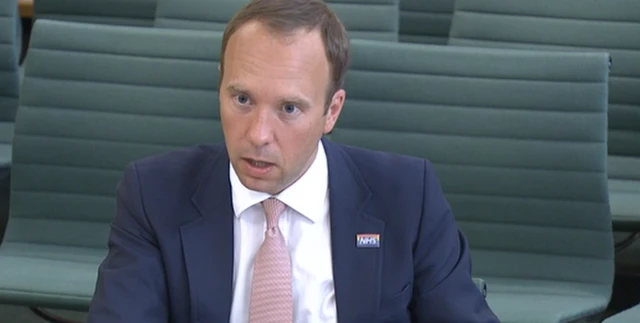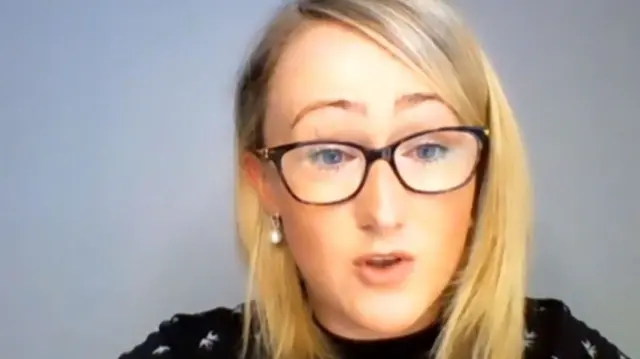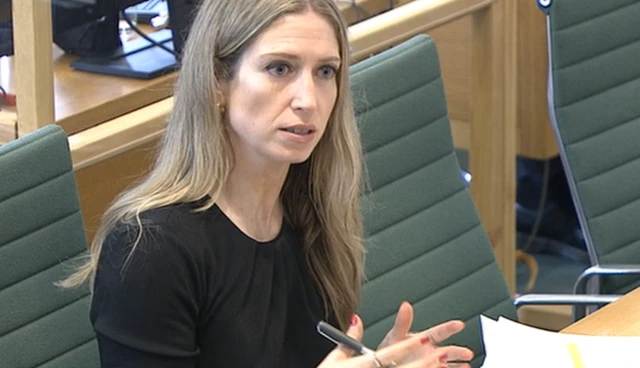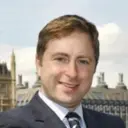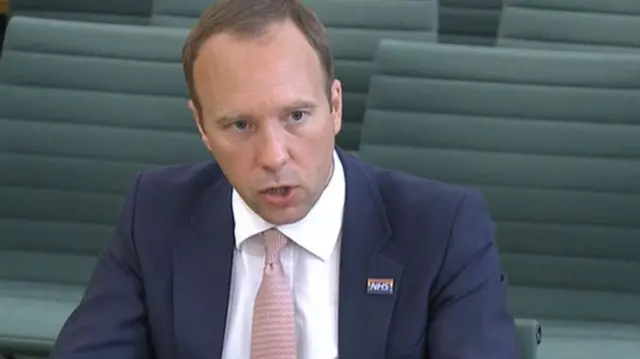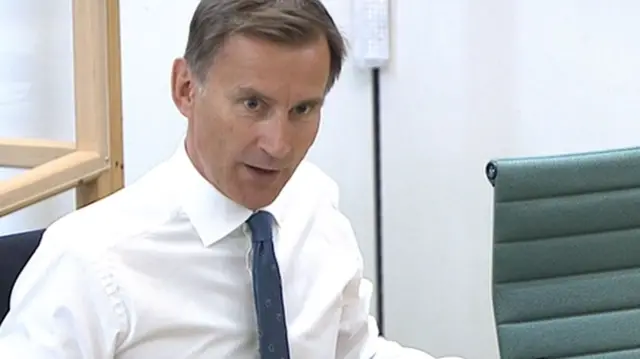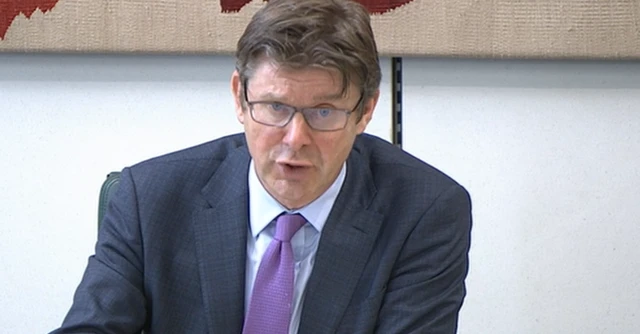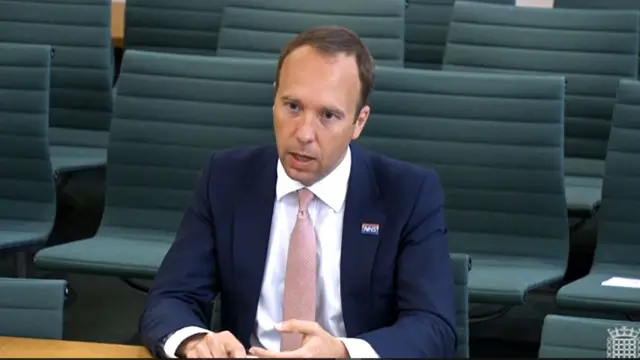Hancock compares building test and trace to building a plane mid-flightpublished at 11:13 BST 10 June 2021
Hunt asks why the NHS Test and Trace system didn't prevent the second and third lockdowns.
Hancock says again that building up the scale is "hard", adding that "building a plane in flight is harder than flying a plane that has been built for a while".
Asked about a Sage analysis in October 2020 that said Test and Trace only had a marginal impact on transmission, he says: "I think that was probably at that point a backward-looking assessment."
"I think that it had had an impact but it clearly hadn't had an impact big enough to bring the R down... to below one," he says.
"There is evidence now, as of today, that the surge testing and tracing and isolation system that we've got in place is working."
Hancock is also asked whether the state promising to make up any salary loss for those who were contact traced, and whether more involvement from local authorities, would have increased isolation compliance.
Hancock says the challenge was "the extent to which it might be gamed".
"You wouldn't want a situation in which if you tested positive you could then list your entire friendship network who all get a £500 payment," he says.
He adds that there had to be both a national and local tracing system.

